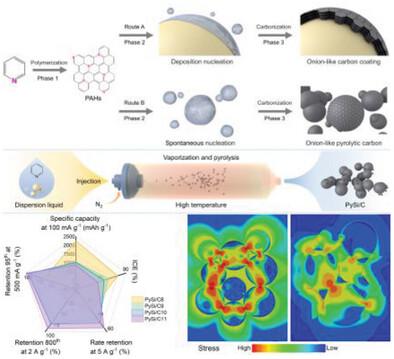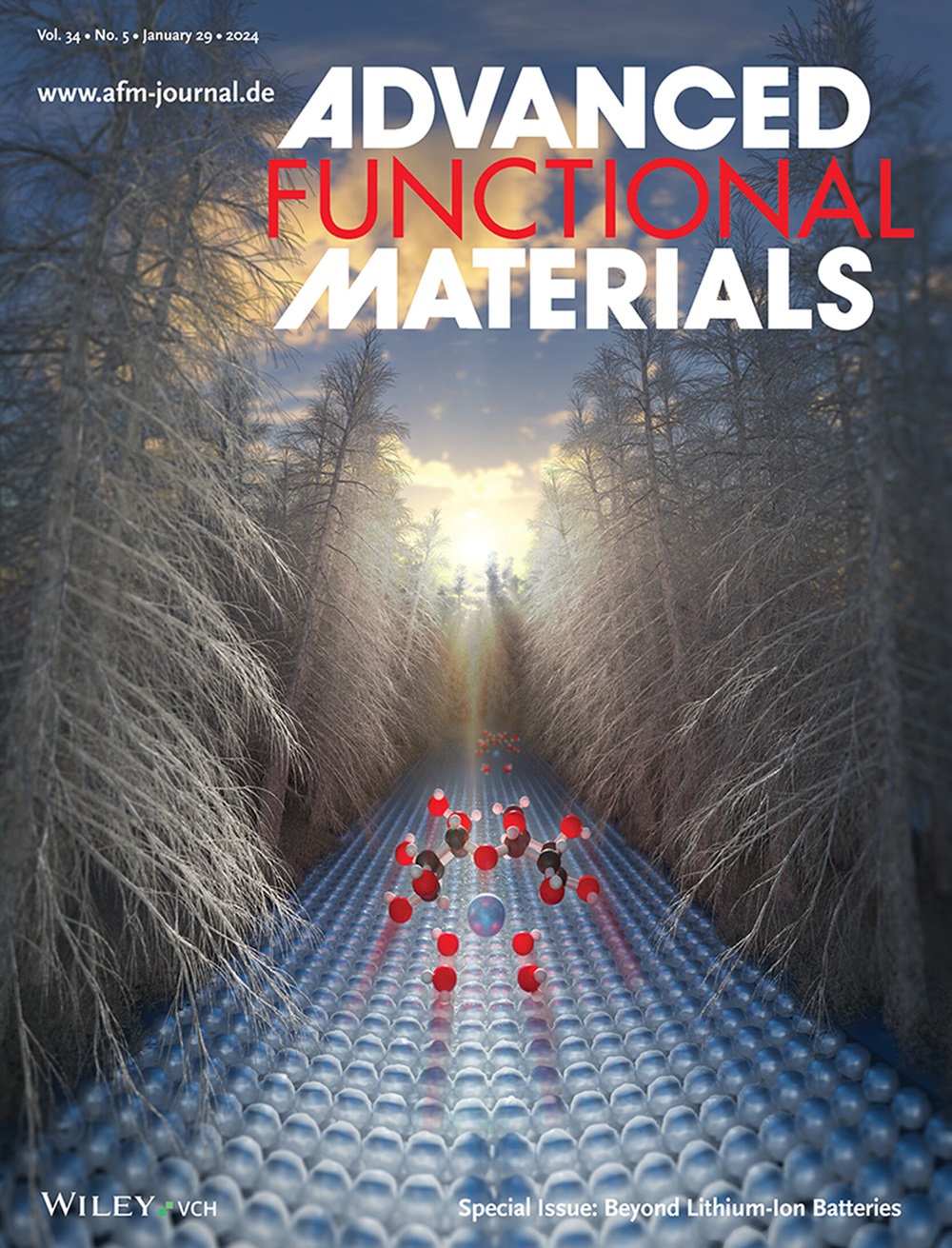Orchestrating a Controllable Engineering of Dual-Model Carbon Structure in Si/C Anodes
IF 18.5
1区 材料科学
Q1 CHEMISTRY, MULTIDISCIPLINARY
引用次数: 0
Abstract
Silicon-carbon composites (Si/C) with multistage structures enable structural integrity during cycling. However, the lack of controllable structure preparation on a large scale hinders the stability improvement in practical applications. Herein, a new strategy is proposed to synthesize kilogram-scale Si/C (PySi/C) featuring a dual-model carbon structure in one step. The controllable combination of an onion-like carbon coating on the Si surface with independent pyrolytic carbon is accomplished through the precise adjustment of the pyrolysis temperature. The dual-model carbon formation mechanism is unraveled, detailing the cooperative coupling of the nucleation laws of carbon compositions as well as the changes trends in morphology and crystallinity. This density functional theory and finite element analysis highlight the dual-model structure's essential contribution to the electrochemical behavior and structural stability. As expected, PySi/Cs anodes deliver stable cycling performance with retention of 91.5% after 800 cycles at 2 A g−1. Its comprehensive electrochemical performance surpasses that of the state-of-the-art kilogram-scale Si-based anode reported. Moreover, the assembled pouch cell exhibits actual competitiveness, showing a capacity of 1.97 Ah and a retention of 88.9% after 300 cycles at 1 C. This work provides valuable design concepts to further advance the development of Si/C anodes.

求助全文
约1分钟内获得全文
求助全文
来源期刊

Advanced Functional Materials
工程技术-材料科学:综合
CiteScore
29.50
自引率
4.20%
发文量
2086
审稿时长
2.1 months
期刊介绍:
Firmly established as a top-tier materials science journal, Advanced Functional Materials reports breakthrough research in all aspects of materials science, including nanotechnology, chemistry, physics, and biology every week.
Advanced Functional Materials is known for its rapid and fair peer review, quality content, and high impact, making it the first choice of the international materials science community.
 求助内容:
求助内容: 应助结果提醒方式:
应助结果提醒方式:


